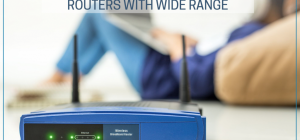You’ve probably heard about VPN, but chances are you do not use this type of service. We believe you should start using a VPN as soon as possible. At first glance, you may not see the true value of such services, but over time, you will find that VPNs are just as important as the Internet connection. In this article, we’ll explain what a VPN is, how VPNs work and what you can use. Read this guide to understand why it’s important to use a VPN service on your computers and devices:
What is a VPN?
A VPN or private virtual network is a secure connection encrypted on a network other than the one you are usually using over the Internet.This means that a VPN expands a private network within a public network (in our case, the Internet), which allows users to send and receive confidential data as if their computers were directly connected to the same private network.
This information might be easier to understand if we give you an example of a real-life situation. Let’s say you and a colleague/friend need to exchange a great deal of information and the program you need to use for this data transfer requires both computers to be connected to the same network. Unfortunately, your friend/colleague is out of town and does not use his own computer. The easiest solution to solve this problem is to set up a VPN connection to your local network that will allow it to connect to the network virtually. This connection will make it seem that you are both on the same local area network and information sharing can be made much easier. In other words, the private virtual network helps you claim to be in a local network, although your only connection is the internet connection.
How does a VPN work?
To get a little deeper into the details of a VPN, we need to talk about Internet traffic. When using a local network to access various services on the Internet, the source of access requests is obviously your own local area network (LAN). But if you are connected to a VPN and all of your internet traffic goes through this virtual network, the outside world sees you as part of the local VPN network. As a result, the source of the queries is no longer your local network, but the one you are connected to through the VPN. This means that the sites and other networks you communicate with will no longer be able to seethe IP addressof your device as the source of access requests, but of the private virtual network you use.
In addition, your Internet Service Provider (ISP) only sees one connection: the one established between you and the VPN service you use, which is, of course, encrypted. As such, the ISP you are using does not have the ability to see what you are doing inside the VPN connection, even if it is running on the Internet and therefore can no longer monitor you.

However, there is a little problem: if you use a VPN whose server is in your country and that uses the same Internet service provider, then this ISP is likely to be able to see the network traffic. However, your ISP will not be able to deduce that your network traffic is yours because its origin is the VPN server rather than your device.
In some ways, the way a private virtual network works is similar to a proxy,since your ISP only sees the proxy connection and, by default, the proxy server is the source of your access requests. The essential difference is that a proxy connection can easily be monitored by the ISP because it can see the access requests made by you to the proxy because they are not encrypted. In other words, with a simple search, all your online activity is still visible. If you want to find out more about the differences between using a VPN and a proxy server, read this article.
How do you connect to a VPN?
There are several ways you can connect to a VPN, but the main idea behind any VPN is that you need to authenticate yourself. The easiest way to establish this secure connection is by directly connecting to the VPN server with a username and password. If you want to connect to avirtual private network in Windowsusing the method above, we recommend that you read the following tutorials:
- How to create, configure, use and delete a VPN connection in Windows 10
- How do you create and use VPN connections in Windows 7?
- Create, configure, and use a VPN connection in Windows 8 & 8.1
If you want to create and connect to aVPN on an Android smartphone,see all the steps in this guide:How do you create, configure, and use a VPN connection on Android.
If you use an iPhone or iPad and want to create a VPN connection on your iOS device, you can read this guide:How to create, configure, and use a VPN connection on an iPhone (or iPad).
NOTE:You can also install an application that allows you to create a secure VPN tunnel. This VPN application deals with encryption and decryption of transferred data. Just as for the previous method, it usually requires a username and a password to confirm your identity. However, you can also use other forms of authentication, such as token devices or smart cards. The advantage of using a token is that this device is very difficult to crack by hackers and as such, you can not steal your password. Also, each token is unique, which means that the VPN server will immediately recognize the user.
The advantages of using a VPN

We summarized all the information we have provided above in an attempt to highlight the benefits of using a private virtual network:
- All traffic between you and the VPN service you use is encrypted and so it’s impossible for someone else to see what you’re doing on the internet
- As long as you are connected to a VPN that does not have the restrictions imposed by someone else, you can access any site on the internet without being censored,
- You can access restricted services and sites in your geographic area if you are using a VPN server that is in a region where they are available
- The servers you connect to can not see your IP address, but the VPN server
- You can browse the Internet, check your emails, or share confidential information on public networks without the risk of being spied on by anyone other than the VPN provider
How do you use VPN services?
Private virtual networks (VPNs) have become a necessity at this time of online monitoring, especially if you want to protect your privacy or if you want secure connections. They create a private tunnel, a closed connection that cannot be decrypted by external agents such as your Internet service provider (ISP) or other entities. This means that the information you send can no longer be intercepted and/or pirated. We hope that this article has helped you understand more clearly what a VPN is and how it works. If you are now convinced about how beneficial this VPN is, you should better to try it. There are many providers today that offer free VPN trial. Before closing the article, tell us if you are using a VPN, how, and why. Comment below and let’s talk.







